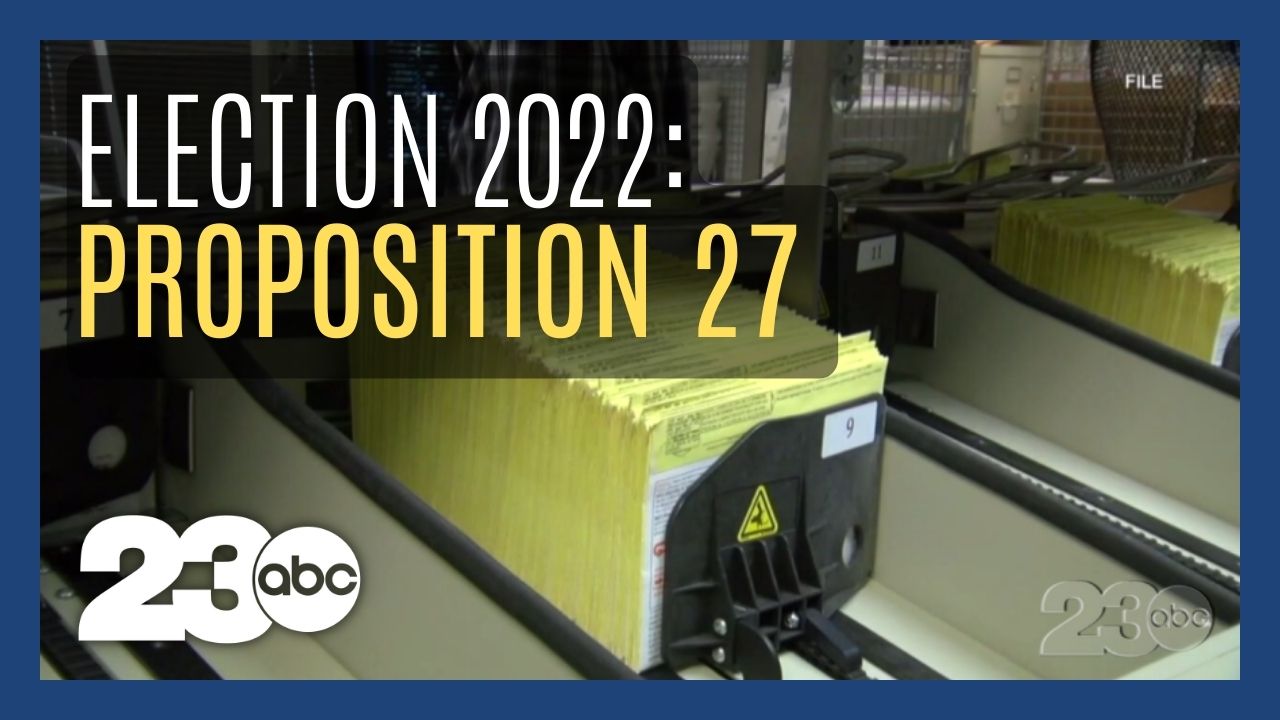BAKERSFIELD, Calif. (KERO) — On Wednesday, 23ABC covered California Proposition 26, which would legalize in-person sports betting at race tracks and tribal casinos.
We continue our election coverage with a closer look at Proposition 27, which would allow mobile sports betting across the state and could open the door for residents who are at least 21 years old to bet on events like award shows and video games.
Major supporters like FanDuel and DraftKings, along with Las Vegas casino companies, are rallying behind the measure.
It would allow California residents to place bets through computers and mobile apps.
If passed, only companies that are established in a number of states or running at least a dozen casinos would be eligible to offer mobile sports betting. These groups would need to pay taxes from profits along with a $100 million licensing fee to operate in the state.
The funds would cover regulatory costs and benefit state programs, including homelessness and gambling addiction services. 15% of profits would also benefit native tribes that don't offer sports betting.
In addition, Prop 27 gives the California Department of Justice more power to regulate new forms of gambling and take action against illegal sports wagering.
Advocates for Proposition 27 say the $100 million licensing fee will make a positive impact on affordable housing for the homeless, mental health services, and provide financial revenue for tribes.
Proponents also argue if passed, the measure ensures a permanent source of funding to address homelessness while benefitting every California tribe, regardless of if they offer sports betting.
They also say underage gamblers would be fined, and the prop prohibits betting on youth sports events.
Opponents of Proposition 27 say requirements including the hefty licensing fee, set too high of a bar for smaller companies to compete in the market, and that it would turn every electronic device into a gambling source, increasing the chance of addiction, especially in underage residents.
Those against the measure also argue it would drive business away from tribal casinos, that it conflicts with tribes' exclusive rights to offer certain types of games, and that profits would benefit the large gaming sites and companies that are established in other states.
It's important to note that companies hoping to operate in California would only be able to offer sports betting if they made a deal with a tribe.



